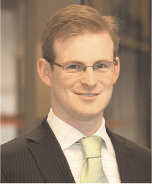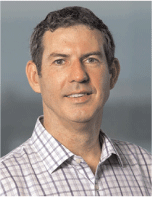Controlling megaproject capital intensity using a new project methodology
Philip Hirschhorn A , Andrew Clark A , Francois Tibi A , Alexander Koch A , David Tapper A , Simon Miller A and Rebecca Russell AThe Boston Consulting Group.
The APPEA Journal 53(2) 463-463 https://doi.org/10.1071/AJ12074
Published: 2013
Abstract
Oil and gas mega-projects are becoming more complex. They are more technically challenging and they face stiffer competition for resources and greater pressure from external stakeholders. Mega-project costs are now an order of magnitude greater than the previous generation.
Effective project delivery is increasingly a source of competitive advantage: the ability to bring projects on faster and at lower capital intensity will determine longer-run market share, for example in LNG. Yet mega-project management techniques have not kept pace. We have seen three-fold increases in capital intensity. Project over-runs are growing disproportionately with project size. Several projects have been delayed or abandoned.
The Boston Consulting Group (BCG) reviewed its accumulated experience in mega-projects across sectors including petroleum, mining, nuclear, and manufacturing. BCG identified common root-causes of major project failure and summarised an approach to improving outcomes—the LESS (lean, efficient and effective, standardised, and structured) Capital methodology:
-
Lean—design and build the minimum technical solution.
-
Efficient and effective—delivering productivity without jeopardising safety or quality.
-
Standardised—capture experience benefits using modular, repeatable designs, and an industrialised approach.
-
Structured—align all parties using clear roles/responsibilities, operating discipline, and incentives.
The approach can be applied at portfolio, program, and individual project levels. It has implications for the projects organisation design, project development and delivery processes, interfaces and contracting with engineering, procurement, and construction management (EPCM)/contractors, and frontline labour practices.
Companies that get this right reduce capital intensity by about 20%, increase construction productivity by about 20%, and reduce the risk of delays.
This extended abstract describes how companies can apply the LESS methodology to minimise capital intensity.

Philip Hirschhorn leads BCG’s energy practice in Australasia as a partner and managing director in the Sydney and Perth offices. He holds an MBA with distinction from London Business School and a BEng (petroleum) from UNSW, for which he received the university medal. As part of his undergraduate degree, he worked at Woodside Offshore Petroleum, Schlumberger, and Santos Ltd. |

Andrew Clark is senior partner and managing director at The Boston Consulting Group, Perth. He primarily advises clients in the mining and resources sector. Before joining the firm, he spent five years as a production manager for Gillette, UK, and was a process engineer for RTZ Chemicals and Queensland Nickel Pty, Australia. He has a BSc (chemistry), a bachelor’s degree (chemical and materials engineering) (first-class honours) from the University of Auckland, and an MBA from the Cranfield School of Management, England. |

Francois Tibi is a partner and managing director at BCG’s Perth office where he leads the development of the organisation’s energy business. Before transferring early this year to Perth, he had been one of the key partners behind the strong development of BCG’s energy practice in Europe. He started his business career at Total where he held technical and commercial roles before joining BCG in 2001. He is a graduate of the Institut Francais du Petrole and Ecole Polytechnique. |

Alexander Koch joined BCG’s Berlin office in 2000, transferred to southeast Asia in 2005, and to Perth in 2012. He leads BCG’s global metals and mining practice as a partner and managing director. He holds a PhD and MPhil in (physics) from the University of Cambridge and a master’s degree in physics from the University of Aachen (RWTH). |

David Tapper Joined BCG in 1997 and is a partner and managing director at the firm’s Sydney office. He has spent time working in BCG’s Auckland, Sydney, and Chicago offices; now, he leads the firm’s industrial goods and infrastructure practice areas. He holds a BCom (management) from the University of Otago. He also holds an MBA from the Australian Graduate School of Management (AGSM), UNSW. He is a director and trustee of the Committee for Auckland. |

Simon Miller is a partner and managing director at BCG’s Sydney office. He has deep expertise in major capital projects, capital efficiency, infrastructure (including ports, rail, energy, water, and roads), and the public sector. Before joining BCG, he was deputy director-general of the Department of Water and Energy (NSW, Australia), a senior adviser to the premier of NSW, chief of staff to the treasurer of NSW, and a senior adviser to the minister for transport and roads and the minister for education and training. He has an MBA from the Australian Graduate School of Management (AGSM), a Master of Public Affairs from the University of Sydney, and a BA (government and classical hebrew) from the University of Sydney. |

Rebecca Russell is a principal at BCG’s Perth office. She holds a BCivEng (honours), a BSc (applied mathematics) from the University of Melbourne, and an MBA from Melbourne Business School, where she was the recipient of the Deans’ honours award. Prior to joining BCG, she was director of project development at the Department of Transport, Victoria, and a senior infrastructure consultant at AECOM (an international engineering consulting firm). |
References
Khoo, C., and Smith, D. (2005). The value of replication: RasGas experience in the execution of LNG trains. RasGas Magazine 13, 3–5.Merrow, E.W., 2011—Industrial mega-projects: concepts, strategies and practices for success. New Jersey, US: John Wiley and Sons.


